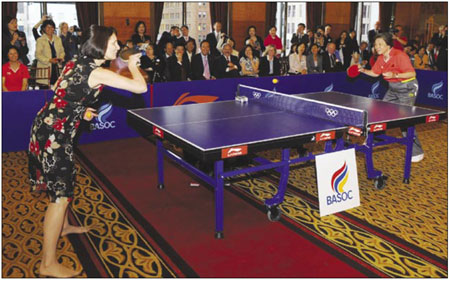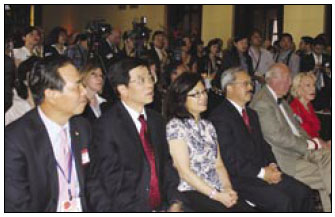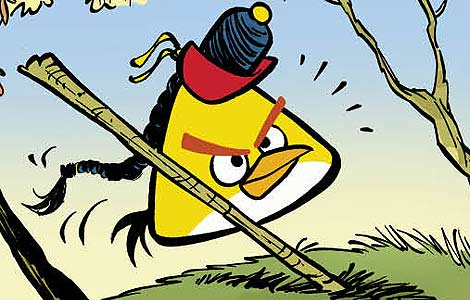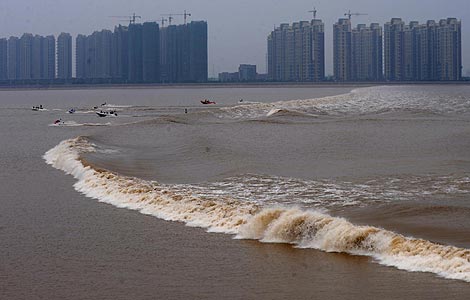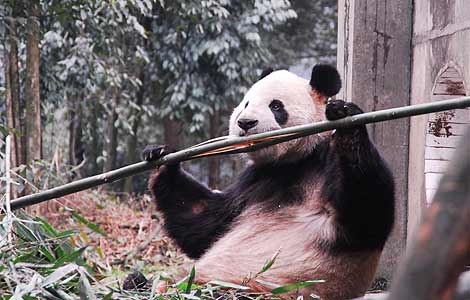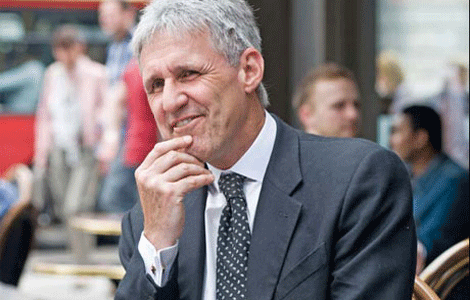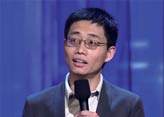Ping pong seen as way to lift Sino-US ties
Updated: 2011-07-08 17:38
By Chang Jun (chinadaily.com.cn)
|
|||||||||
SAN FRANCISCO – Veteran players from China and the United States, who played in the original Ping Pong Diplomacy match in 1971, gathered with government officials and sports professionals this week to discuss how they can continue to use the small white ball to promote the friendship of two peoples.
|
Retired Chinese and US table tennis players enjoy a ping-pong game in San Francisco on Tuesday to mark the 40th anniversary of Ping-Pong Diplomacy, which led to the establishment of diplomatic relations between China and the United States. Liu Yilin / Xinhua |
In 1971, nine American table tennis players attending the Nagoya World Table Tennis Championship were invited to visit Beijing and play demonstration games against their Chinese counterparts after years of estrangement and antagonism between the two nations.
Believed to help break the ice and open the door for China-US people-to-people exchanges, this Ping Pong Diplomacy laid the groundwork for President Richard Nixon's one-week China visit in 1972 "that changed the world," and the eventual normalization of diplomatic relations between China and the United States in 1979.
The commemoration of the 40th anniversary of the event is being viewed as an indispensable part in the course of the growth of the China-US relationship.
In her congratulatory letter at a reception sponsored by the San Francisco Chinese Consulate General Tuesday night, State Councilor Liu Yandong expressed hope that people-to-people exchanges, including those involving sports competition, like the Ping Pong Diplomacy 40 years ago, could help further boost the China-US cooperative partnership in the new era based on mutual respect and benefit.
Ed Lee, the mayor of San Francisco, believed people will begin to talk to each other and better understand each other's cultures when beginning to play sports on an international level. He proclaimed July 5, as the day of Ping Pong Diplomacy in San Francisco to help spread the concept of people-to-people interactions.
A citywide ping pong tournament will be held in Chinatown on Sep 18, Lee said. "Through the sport of table tennis, the whole world changed," Lee said. "Ping Pong Diplomacy provided a way to open the doors of the world's largest country to the world's most powerful nation."
Cai Zhenhua, vice minister of China's General Administration of Sport and president of the Chinese Table Tennis Association, is leading a 14-member delegation of table tennis Olympians and sports officials to participate in a series of celebrations of Ping Pong Diplomacy in Milwaukee, San Francisco and Los Angeles from July 1 to 9.
On Tuesday, Tim Boggan, Judy Hoarfrost and George Braithwaite from the 1971 American team, reunited with Liang Geliang, Zheng Huaiying and Yang Jun, their then Chinese competitors who were with Cai's delegation this time, at a forum entitled "Sports and Diplomacy," sponsored by the Asia Society and the Bay Area Sports Organizing Committee (BASOC) to commemorate the anniversary.
Anne Cribbs, an Olympian and president of BASOC, said they organized this forum to let people discuss the importance of sports and diplomacy. "The promotion of peace and goodwill through sports is a core value of BASOC, and of course the Olympic Movement," she said. "Ping Pong Diplomacy is perhaps the greatest demonstration of the power of this belief in the last half-century, and it must be commemorated accordingly."
|
Cai Zhenhua (left), president of Chinese Table Tennis Association; Gao Zhansheng (second from left), Consul General of the San Francisco Consulate General; Ed Lee (fourth from left), mayor of San Francisco; and former state secretary George Shultz (second from right) attend a reception Tuesday in San Francisco to commemorate the 40th anniversary of Ping-Pong Diplomacy. Chang Jun / China Daily |
During the forum's panel discussions, the six players shared their thoughts on Ping Pong Diplomacy, refreshing their memories of 40 years ago. Unanimously concluding that the memory is long-treasured and beautiful, they also pledged to look into the future, to work with the younger generation to not only promote ping pong as a sports activity, but a spirit of cooperation, understanding and respect between peoples and cultures.
Ping Pong Diplomacy has brought changes, not only to the world, but to individuals like Hoarfrost. The youngest member of the US team in 1971, the then 15-year-old had a "life-changing" week in China which later had a lasting impact on her.
She realized from the moment she crossed the border that "it was a totally different planet." She convinced herself that "there is more than one way of thinking," which she now believes is the essence of Ping Pong Diplomacy, the legacy she wants to pass to the next generation.
Zheng Huaiying, the woman's world champion, visited the US with her Chinese National Table Tennis Team members in 1972. During the 10-city tournament across the county, Zheng and her team played exhibition matches under the mantra of "friendship first, competition second."
"We've made a lot of friends. Warm smiles and kindness followed our footpaths wherever we went," recalled Zheng. "This is the power of friendship, no one can stop it."
"Who ever thought that the tiny white ball can change the world, help establish a harmonious and friendly China-US relationship?" Zheng asked, adding she is very proud of being part of the history-making process.
Never before in history has a sport been used so effectively as a tool of international diplomacy, once said the late Chinese Premier Zhou Enlai.
Braithwaite, a member of the 1971 US team and the former vice president of the USA Table Tennis Association Board, said he was worried about the future of American table tennis. With roughly 8,000 members in the national association, Braithwaite hoped the younger generation can be more involved.
In response, Zheng expressed her willingness to use this trip as an opportunity, to help the American table tennis association promote the sport. "I wish we can collaborate with our American counterparts to help make ping pong a popular and favorite game among the young generation in the United States," Zheng said.
China and the US signed a joint statement during President Hu Jintao's US visit in January, in which the people-to-people exchanges were considered part of the China-US cooperative partnership, according to Liu. At the second annual high-level Consultation on People-to-People Exchange, held in the United States in April, a variety of areas, including sports, were included in people-to-people exchanges between the two countries, Liu said.
